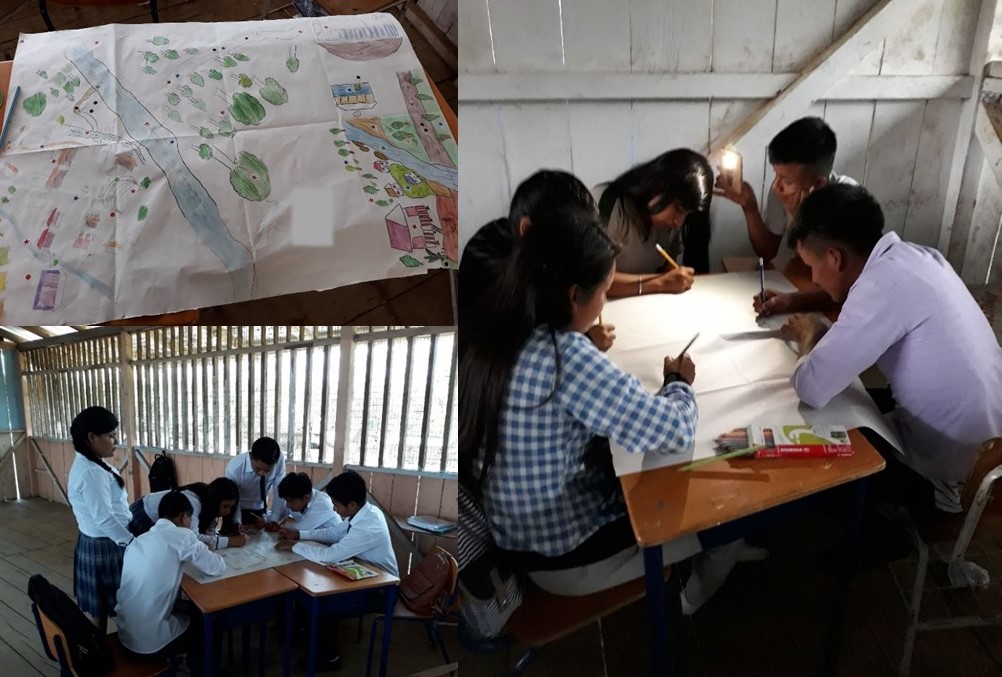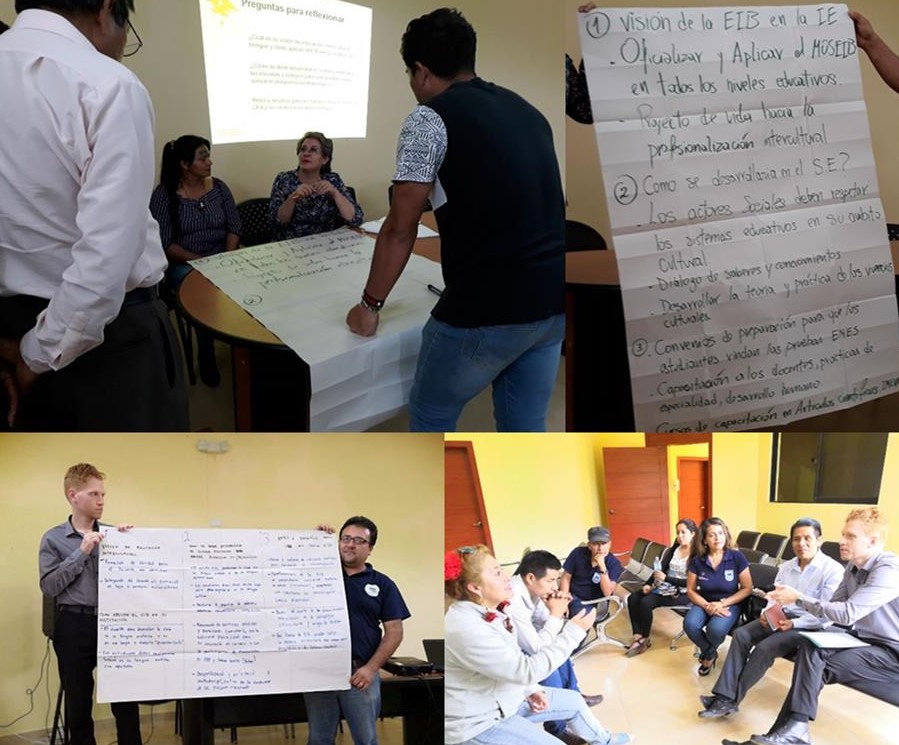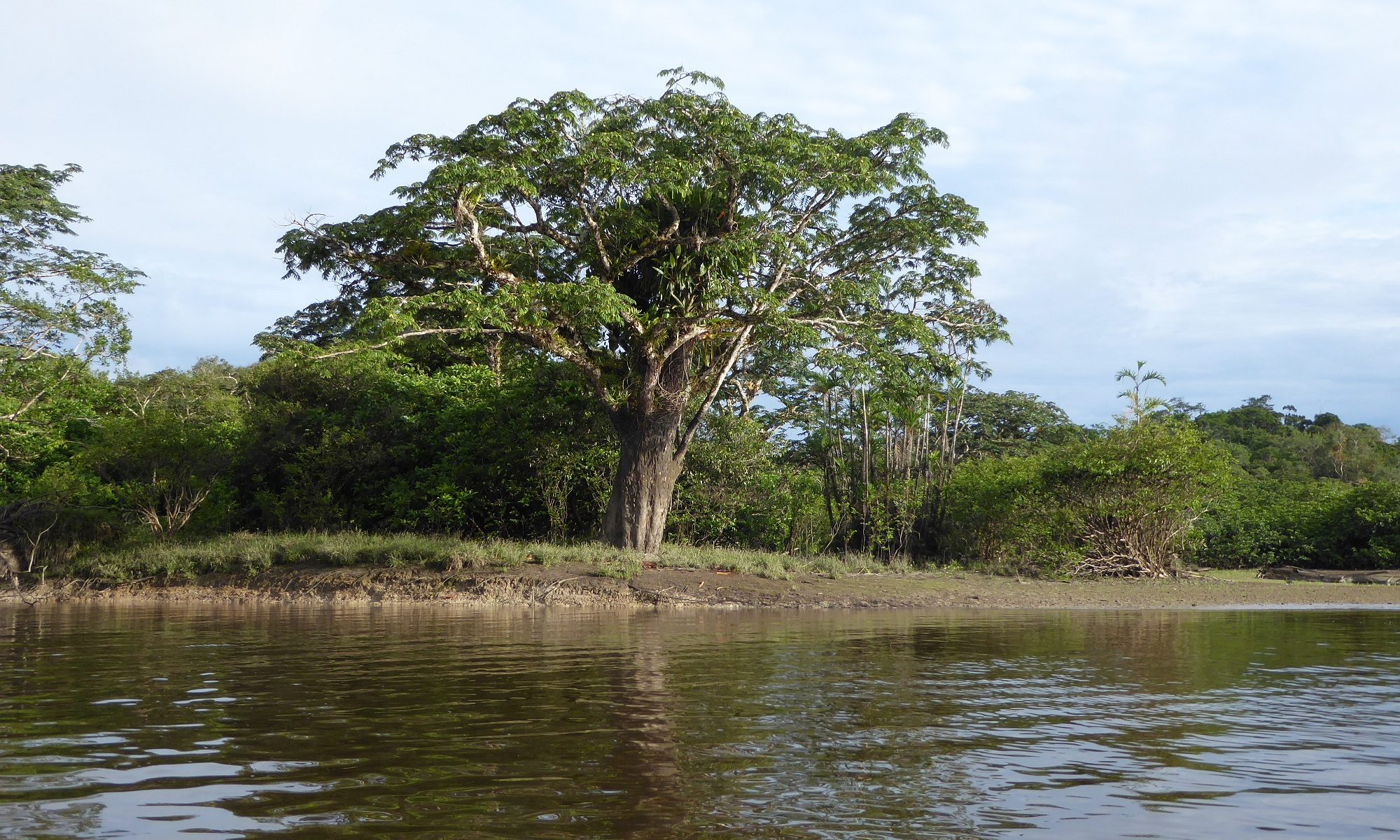During the year 2019, fieldwork and data collection were the main activities of the project. The project team met during three periods of fieldwork in Ecuador. In January, Paola Minoia and Andrés Tapia interviewed and discussed with key actors, including professionals and experts in education, ancestral knowledges, decoloniality and interculturality, as well as with Indigenous leaders and representatives of NGOs, in Quito and Pastaza. In March-June and September-October, Tuija Veintie, Johanna Hohenthal, Andrés Tapia, Katy Machoa, Tito Madrid and students of the UEA visited the IBE upper secondary schools in Pastaza and interviewed directors, teachers, students and parents. Three schools were selected for more comprehensive field study: UEIB “Camilo Huatatoca” in Santa Clara, UEIB “Sarayaku” and UEIB “Kumay”. In these schools, we conducted a higher number of in-depth interviews with teachers and students, questionnaire surveys, classroom observation, as well as participatory mapping and photography with the students.

In March, the research team also organized an event at the Instituto Superior Pedagógico of Canelos with IBE school directors and teachers. Ruth Arias, Mayra Espinoza, Simon Leib and Leo Rodríguez participated in the event from UEA. In the seminar, Tuija Veintie gave a presentation on her PhD research on intercultural bilingual teacher education and Johanna Hohenthal reported some initial results of the questionnaire survey data gathered in 2018. The seminar also included a group work session where the participants discussed on intercultural bilingual education (IBE), recognition of epistemic diversity in education and on collaboration between UEA and IBE schools. Results stressed the importance of formalizing the Intercultural Bilingual Education Model in Ecuador (MOSEIB) and its application on all educational levels. Participants also suggested that UEA could contribute to teacher training.

In Ecuador, the group organized also other research seminars and meetings at Universidad Andina Simón Bolívar, Latin American Social Sciences Institute (FLACSO), Pontificia Universidad Católica del Ecuador (PUCE), Universidad Regional Amazónica (IKIAM) and Universidad Estatal Amazónica (UEA). We also met with leaders of the indigenous organizations CONAIE and CONFENIAE and government representatives.
Furthermore, the project members presented their research in four international conferences: Development Days in Helsinki in February, Latin American Geographers’ Conference (EGAL) in Quito in April, Nordic Geographers Meeting (NGM) in Trondheim in June and Annual International Conference of the Royal Geographical Society (RGS-IBG) in London in August. EGAL had two panels coordinated by the project team members Andrés Tapia and Paola Minoia.
In August, Katy Machoa, Ecuadorian group member and a representative of CONFENIAE, visited the University of Helsinki. She gave a presentation in a seminar for Development Studies and Helsinki Institute of Sustainability Science (HELSUS). Katy and Paola also were interviewed for an EXALT podcast of the University of Helsinki (to be published in spring 2020).
In addition, during 2019 Anders Sirén collected data on the calendarios vivenciales educativos and cartillas de saberes ancestrales, and their use as educational tools in IBE schools in Pastaza. Furthermore, Riikka Kaukonen finalized her MA thesis on education and indigenous territorial struggles in the Sapara area in December.
Towards the end of the year, the project researchers were busy with teaching duties. In the beginning of 2020, the group continues the data analysis and focus on writing work. We are now preparing an edited book in Spanish. Next summer, the group will also organize a panel at EADI ISS conference 2020 in The Hague (Netherlands), with an aim to gather papers for a special issue for an international journal. At least two fieldwork periods in Ecuador in spring and autumn are also planned.
